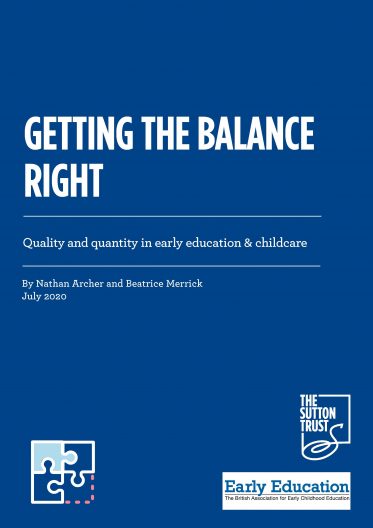Early Education Provision
• Despite aspirational statements on closing the school readiness gap between disadvantaged children and their peers, efforts to close the gap in outcomes for children aged 5 have stalled and the gap is widening again. Having slowly but steadily decreased from 2007 to 2017, the gap in the Early Years Foundation Stage Profile by 2019 had increased back to 2015 levels.
• Attention during that time has focused on the policy of 30 hours free childcare for eligible working parents. This offer is for 15 hours above the universal entitlement, with only working parents meeting a minimum salary threshold eligible. There are mixed views in the sector as to whether, at current funding levels, this might have a negative impact on the sustainability and quality of provision. Concerns about inequalities have been raised given the most disadvantaged children are likely to qualify for only 15 hours per week early education entitlement, while their more advantaged peers have access to 30 hours.
• Under the current funding system, providers may be incentivised to take children entitled to 30 hours free childcare, over those with the universal 15 hours or disadvantaged 2-year-old provision. A quarter of providers in the Private, Voluntary and Independent (PVI) sector reported that the number of universal 15 hours places had declined at their setting after the introduction of the 30 hour entitlement, while 38% of councils reported that the introduction had caused difficulties for delivering places for disadvantaged 2-year-olds. However, the impact differs locally, and has evolved over time.
The Early Years Workforce
• The 2017 Early Years Workforce Strategy in England failed to put in place a long-term plan to upskill and invest in the early years workforce. A key commitment to grow the graduate workforce in disadvantaged areas was dropped.
• Recent research shows a decline in the proportion of staff qualified to Level 3 (A Level equivalent) or with graduate qualifications. The National Day Nursery Association found that the number of level 3 qualified staff has fallen from 66% in 2017-18 to 52% in 2018-19, the number of graduates and Early Years Teachers (EYT) has fallen from 13% to 5%, and that the number of unqualified staff has risen from 10% to 26% in the same period. Recruitment remains a challenge and the workforce is ageing, with fewer employees upskilling.
• Fewer than half of PVI settings employ an EYT or equivalent, with cost the main barrier, while all maintained nurseries and nursery classes in schools have access to a qualified teacher. Registrations on EYT courses have plummeted from 2,300 in 2013-14 to under 400 in 2019-20.
Sustainability, sufficiency, access and affordability
• There is widespread concern about the viability of the early years sector, as rising costs have not been met by rises in government funding rates. This is leading to closures, many in disadvantaged areas.
• The 30 hours entitlement has reduced the scope for cross-subsidy from parent-paid fees. This has exacerbated shortfalls between income and costs. This issue is particularly pronounced in disadvantaged areas, where there is less demand for parent-paid hours.
• The complexity of the funding system may act as a barrier for parents. Upfront costs can be prohibitive for some parents, particularly as those on benefits can only claim childcare costs in arrears, not up front.
• The 30 hours policy also has greater financial benefit for better-off parents, as families on tax credits or Universal Credit were already able to claim up to 85% of childcare costs through the benefit system. For many lower income families the total financial benefit has only increased very slightly, whereas better-off families have seen a doubling of government funded childcare. Three quarters of the funding goes to the richest 50% of workers.
